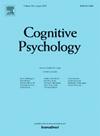形状在民间生物学概念中的“应该”是怎样的
IF 3
2区 心理学
Q1 PSYCHOLOGY
引用次数: 6
摘要
知道哪些特征在生物种类中是常见的(例如,大多数斑马都有条纹),可以塑造人们对类别成员是什么样的表征(例如,典型的斑马有条纹),以及对他们应该是什么样的规范性判断(例如,斑马应该有条纹)。在目前的工作中,我们提出了一个问题,即人们倾向于解释为什么特征频繁出现,这是否是一个关键机制,通过这个机制,“现状”决定了人们对“应该”是什么的信念。在四项研究中(N = 591),我们发现频繁的特征通常是通过对特征功能的吸引力来解释的(例如,条纹是用来伪装的),功能解释反过来塑造了典型性的判断,功能解释和典型性都预测了规范性判断,即类别成员应该具有功能特征。我们还确定了从特征频率和功能推断的因果假设,以及所绘制的规范性推断的性质:通过指定工具目标(例如,伪装),功能解释为规范性评估奠定了基础。这些发现揭示了我们对自然世界的描述如何以及为什么会影响我们对自然世界应该如何的判断。本文章由计算机程序翻译,如有差异,请以英文原文为准。
How “is” shapes “ought” for folk-biological concepts
Knowing which features are frequent among a biological kind (e.g., that most zebras have stripes) shapes people's representations of what category members are like (e.g., that typical zebras have stripes) and normative judgments about what they ought to be like (e.g., that zebras should have stripes). In the current work, we ask if people's inclination to explain why features are frequent is a key mechanism through which what "is" shapes beliefs about what "ought" to be. Across four studies (N = 591), we find that frequent features are often explained by appeal to feature function (e.g., that stripes are for camouflage), that functional explanations in turn shape judgments of typicality, and that functional explanations and typicality both predict normative judgments that category members ought to have functional features. We also identify the causal assumptions that license inferences from feature frequency and function, as well as the nature of the normative inferences that are drawn: by specifying an instrumental goal (e.g., camouflage), functional explanations establish a basis for normative evaluation. These findings shed light on how and why our representations of how the natural world is shape our judgments of how it ought to be.
求助全文
通过发布文献求助,成功后即可免费获取论文全文。
去求助
来源期刊

Cognitive Psychology
医学-心理学
CiteScore
5.40
自引率
3.80%
发文量
29
审稿时长
50 days
期刊介绍:
Cognitive Psychology is concerned with advances in the study of attention, memory, language processing, perception, problem solving, and thinking. Cognitive Psychology specializes in extensive articles that have a major impact on cognitive theory and provide new theoretical advances.
Research Areas include:
• Artificial intelligence
• Developmental psychology
• Linguistics
• Neurophysiology
• Social psychology.
 求助内容:
求助内容: 应助结果提醒方式:
应助结果提醒方式:


